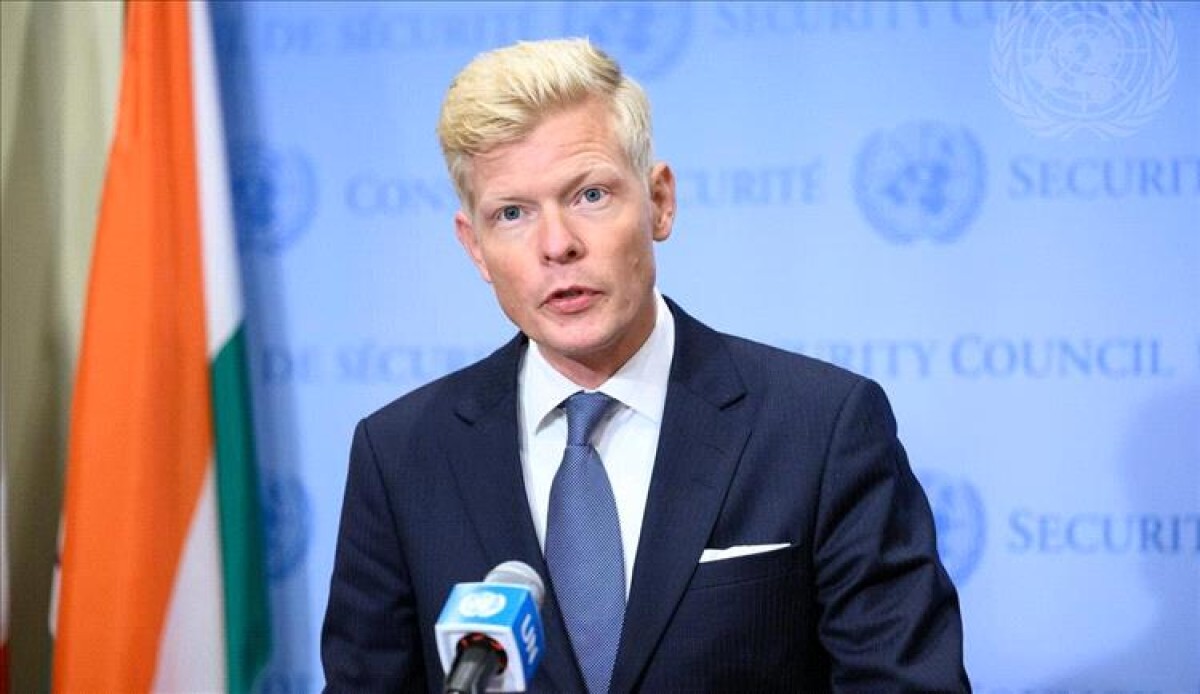An international warning regarding the situation in Yemen


The UN envoy to Yemen, Hans Grundenberg, stressed the danger of escalating tensions in the region to the Yemeni peace process, calling for the support of the international community.
Grundenberg indicated in an interview with Al-Hurra TV yesterday, Monday, after a week full of meetings on the sidelines of the United Nations General Assembly, that the war in Gaza and Lebanon affects moving forward with the peace process in Yemen.
He said that “The instability that we have witnessed in the recent period is deeply concerning, not only because thousands of lives have been lost, and the crisis has spread grief in the region, but it has cast a shadow over our ability to make decisions in the interest of civilians, and this has affected our work in Yemen.”
When asked about his position on the Houthis’ targeting of ships in the Red Sea, the UN envoy said: “For this reason, the United Nations was calling for a ceasefire in Gaza from the beginning and the release of the hostages, and we were clear about the risks of instability on the borders and this It leads to instability in the entire region, and this calls for the necessity of a ceasefire and an end to the conflict.”
He explained that “a stable Yemen can affect the region positively, and a stable region can also affect the war in Yemen,” noting that “there is a link between the two matters.”
The UN envoy describes the role of the United Nations in Yemen as mediation between the various parties and stakeholders, saying: “If I want to be effective in my work, I need full and unconditional support from the international community so that the parties agree on the next step and move beyond.” The truce we reached in 2022, and for that to happen we need an environment that leads to this level.”
Regarding the Iranian role, Grundenberg stressed that the role of the countries of the region in the conflict in Yemen is “very important,” saying: “My ambition since the beginning of my work on this file is to ensure that Yemen’s neighbors in the Arabian Peninsula, the Gulf, and Iran can be constructive in Achieving peace in Yemen.”
He added: “I communicate not only with the Yemenis, but with Saudi Arabia, Oman, the Emirates, and the Iranians,” noting that he visited Tehran less than two weeks ago, “and there was a long discussion, and talks here in New York as well.”
He refused to describe the Iranian role, whether it was constructive or not, and the details of the discussions he held in Tehran.
But he said that his discussions with the Iranian Foreign Minister when he visited Tehran two weeks ago “were constructive, and identified the necessity of moving forward in order to achieve A just solution in Yemen.
He added: “I asked all interlocutors in the region and all stakeholders to have a constructive stance towards Yemen and support peace, and my message to them was that there are enough weapons in Yemen and there is no need for more weapons in Yemen.”
When asked about the United Nations’ point of view regarding the American and British strikes and launching air attacks on the Houthis to weaken their ability to disrupt navigation, he said, “There is always the possibility of reaching a negotiated solution to any conflict in any situation, and this is the line that the United Nations follows.”< /p>
Grundenberg stressed, "The United Nations supports peaceful developments, and we are concerned about the developments we see. We are always in favor of negotiated settlements. Developments in Yemen we want to see go in the right direction, and in the past months we have not seen this."